urban farm & house remodel (update dec 2011; Part 2)
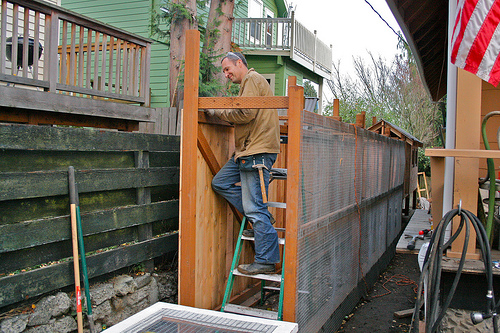 Want to read part 1? Part 1 is all about the house and yard remodel. Dirt and paint, really. Part 2 is an urban farm update: crops and animals.
Want to read part 1? Part 1 is all about the house and yard remodel. Dirt and paint, really. Part 2 is an urban farm update: crops and animals.
I like saying 'crops'. I know in reality I have a small collection of garden boxes, a 'square' of corn instead of long steady rows and probably only enough growing edibles to feed a single family. But regardless of the humble nature of my garden plots, one of the most rewarding bits of having an urban farm is sourcing our own food. Since this is year 1 of having seeds and a garden---and only as each 'box' was built---I wanted to make some notes about what I liked and didn't, what worked and what was a total bust.
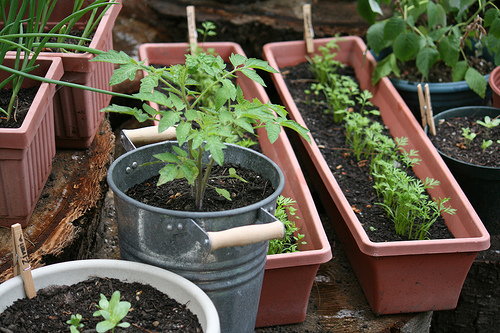
Crops I liked and will plant again:
- Tomatillos (but earlier, they didn't quite make it before the first frost),
- SunGold tomatoes---my official bumper crop. As sweet as grapes.
- Peppers. I grew a few Anaheim peppers and will add many, many more peppers this coming year---both hot and mild.
- Corn. LOVED seeing corn stalks in the garden and truth be told, I like knowing they aren't genetically modified (aka trusted seed source). But I need to plant short-season corn since I live in the PNW.
- Arugula. This is easily my most favorite lettuce. I fell in love with it when we cycled in Europe and lived in Italy; elsewhere it is called rocket, roquette, rugula and rucola. I love it no matter what you call it.
- Spinach. Another of my go-to greens. Need to keep it on hand.
- Radicchio. One can never have enough greens in their diet---even if they are purple. I actually grew Treviso, the name of the radicchio that hails from Northern Italy. It is a bit bitter, so I won't plant as much.
- Italian Parsley. Cannot get enough of it. Especially since I learned to pressure can my homemade stocks (I use parsley stems for making stock).

Crops that made the naughty list:
- Carrots. They just didn't grow well. Next year: multiple sowings, thin out properly and grow large---not baby---carrots.
- Nasturtiums. While we had an immediate love affair---they are bright colored edible flowers with a flavor similar to arugula---they ended up being a constant party station for colonies of black aphids. Bugger.
- Corn. Only because it didn't fully mature. It was beautiful to watch and I just need to buy short-season corn.
- Cherries. I adore my cherry tree. It might have been why I had to buy this property... but it is so large there is no way to reach the cherries. And I was out of town when they all ripened. Which means: I have to wait until next year to figure out how to harvest them.
- Tomatoes. I know, I know. My blog's namesake. I love tomatoes; it isn't their fault the summer was so cold this year. It was hard for them to ripen in those conditions. But they are on the naughty list not just because they failed to ripen, but because I had only smallish tomatoes growing... which means skinning them for canning is a bad idea. Next year I will grow large juicy tomatoes for canning purposes (and start my 'starts' much earlier than April!). I want my pantry to be full-to-the-hilt with canned tomatoes---but it will have to wait until next year.
- Beets. I adore beets but mine had serious bug issues. And they are so inexpensive in the store this time of year... and they really didn't grow large enough...
- Fava Beans. Grew them, loved watching them develop but the ratio of how many favas you finally harvest to how much 'space' it takes to grow them... makes me think that same plot would be better served by another, more bountiful plant.
- Thyme. I love thyme, but it didn't grow well. Next year it needs a new location. Do you have a favorite thyme variety?
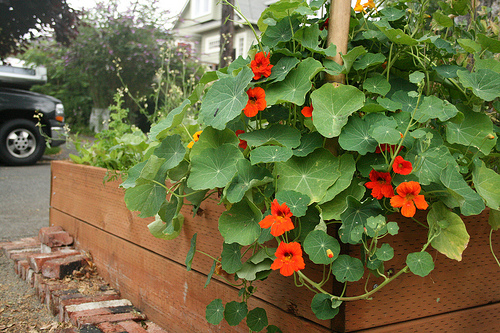
As for animals: we have 8 chickens. We added them to our farm back in June/July and have watched them grow into quite large hens.
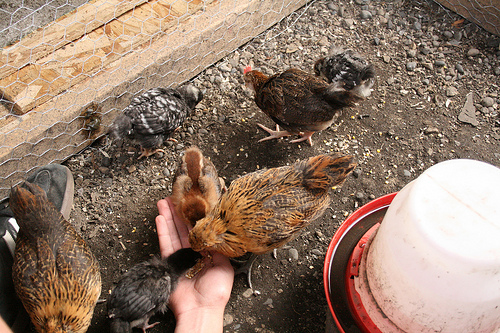
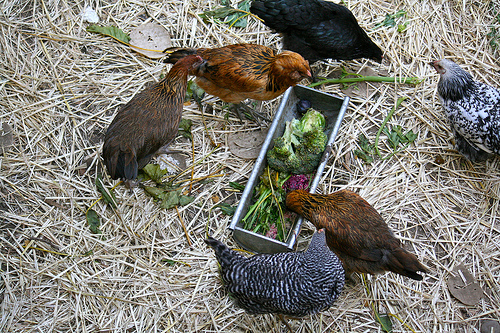
For now: we just have chickens. Although I love the idea of a goat---they are gaining in popularity here in Seattle---you have to milk them twice a day and that is a huge commitment. But you know me: I still like to venture off the farm and trade in my cowboy boots for stilettos, pick up some paddles or sip wine in Italian cellars. So the goat thing will have to wait. (I am actually looking for a goat milk resource so I can make my own goat cheese---I figure that's the next best thing).
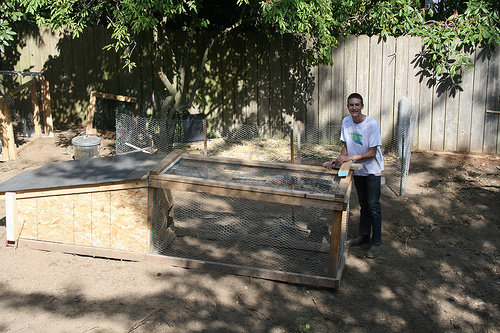
The chickens JUST moved into their coop. Since they arrived at our home this past June they have lived in a cardboard box and 3 temporary, make-shift coops/runs (Anthony built a lovely one, see above). But James has been building like crazy (first photo in post, see top) and the coop is in working order. He still wants to put on some finishing touches, but the hens are happy: they have multiple roosts (one is a recycled cherry picker that we found in the yard---perfect!), nesting boxes, and a very long somewhat narrow RUN. And by long I mean over 30 feet long by 3 feet wide.
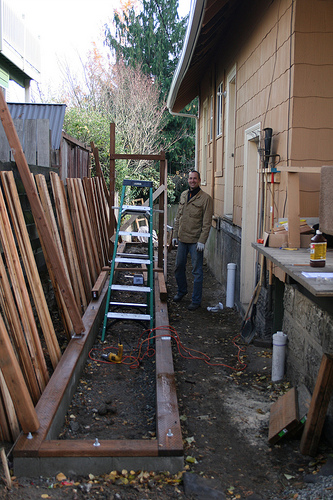



We used a recycled door for the front of the coop, chose corrugated metal for the roof and re-purposed old, forgotten windows for the side of the coop.

Now that the chickens are in their final home, we are ready for them to lay (we are pretty sure they have been ready to lay for a bit, but now it is our turn to help). To help them lay: we provided nesting boxes with wood shavings (not cedar), light for at least 14 hours a day and have modified their diets to include calcium (for forming egg shells) via yogurt, oyster shells and leftover cheese. We also buy layers feed which includes grains with pumped up calcium and protein.
Check out the entire Urban Farm Album. I will be adding more pictures of our coop, chickens and eggs SOON. Right girls?